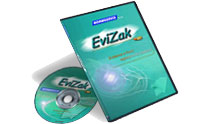Wir benötigen Ihre Einwilligung zur Verwendung der einzelnen Daten, damit Sie unter anderem Informationen zu Ihren Interessen einsehen können. Klicken Sie auf "OK", um Ihre Zustimmung zu erteilen.
ASTM D2257-98(2012)
Standard Test Method for Extractable Matter in Textiles
Automatische name übersetzung:
Standard Test Method for extrahierbare Bestandteile in Textilien
NORM herausgegeben am 1.2.2012
Informationen über die Norm:
Bezeichnung normen: ASTM D2257-98(2012)
Anmerkung: UNGÜLTIG
Ausgabedatum normen: 1.2.2012
SKU: NS-19812
Zahl der Seiten: 5
Gewicht ca.: 15 g (0.03 Pfund)
Land: Amerikanische technische Norm
Kategorie: Technische Normen ASTM
Kategorie - ähnliche Normen:
Die Annotation des Normtextes ASTM D2257-98(2012) :
Keywords:
extractable matter, fabric, textile fabric, textile strand , Yarn properties, Acceptance criteria/testing--textile fabrics/fibers, Extractable matter content--textile fabrics/fibers, Low-boiling ingredients, Residue, Solvent extraction, Solvents, Soxhlet extraction, ICS Number Code 59.080.20 (Yarns)
Ergänzende Informationen
| Significance and Use | ||||||||||||||||||
|
This test method may be used for acceptance testing of commercial shipments. In case of a dispute arising from differences in reported test results using this test method for acceptance testing of commercial shipments, the purchaser and the supplier should conduct comparative tests to determine if there is a statistical bias between the laboratories. Competent statistical assistance is recommended for the investigation of bias. As a minimum, the two parties should take a group of test specimens which are as homogeneous as possible and which are from a lot of material of the type in question. The test specimens should then be randomly assigned in equal numbers to each laboratory for testing. The average results from the two laboratories should be compared using appropriate statistical analysis and a probability level chosen by the two parties before the testing begins. If a bias is found, either its cause must be found and corrected, or the purchaser and supplier must agree to interpret future test results with consideration to the known bias. This test method is used for the determination of the amounts of naturally present oily or waxy impurities that have not been completely removed from textiles made from animal fibers, and for the determination of the amounts of oily or waxy finishing materials applied to raw materials or textiles during manufacture. See 3.1.1, extractable matter. The test method may be used as a step in the determination of the commercial weight of fiber, yarn, and textile shipments. The International Wool Textile Organization specifies the use of a halogenated hydrocarbon, dichloromethane, also called methylene chloride (CH2Cl2) instead of the solvent specified in this test method (IWTO-10-62(E)). Extractables by mass loss is frequently used for textiles which have a relatively large amount of extractable material to effect a significant mass change. |
||||||||||||||||||
| 1. Scope | ||||||||||||||||||
|
1.1 This test method covers a procedure for determining the extractable material on most fibers, yarns, and fabrics. Three options are included. Option 1 uses heat and Soxhlet extraction apparatus. Option 2 uses room temperature and extraction funnels. Option 3 uses either Option 1 or Option 2 extraction but provides for calculation of extractable matter from the loss in mass of the material due to the extraction rather than the extractable matter residue. Note 1—Other standards for the determination of extractable matter in textiles made of specific fibers include: Specification , Specification , and Test Method D1574. 1.1.1 The solvents for use in this method are any solvents that the party or parties concerned agreed on; such as, Halogenated Hydrocarbon (HH) chloroform, tetrachloroethane, alcohol. 1.1.2 This test method may not extract cross-linked finishes or resins which may be on the textile. 1.2 The values stated in SI units are to be regarded as standard. No other units of measurement are included in this standard. 1.3 This standard does not purport to address all of the safety concerns, if any, associated with its use. It is the responsibility of the user of this standard to establish appropriate safety and health practices and determine the applicability of regulatory limitations prior to use. See Sections 6 and 7. |
||||||||||||||||||
| 2. Referenced Documents | ||||||||||||||||||
|
Ähnliche Normen:
Historisch
1.5.2011
Historisch
1.7.2013
Historisch
1.7.2013
Historisch
1.7.2013
Historisch
1.2.2012
Historisch
1.7.2012
Empfehlungen:
EEviZak – alle Gesetze einschließlich ihrer Evidenz in einer Stelle
Bereitstellung von aktuellen Informationen über legislative Vorschriften in der Sammlung der Gesetze bis zum Jahr 1945.
Aktualisierung 2x pro Monat!
Brauchen Sie mehr Informationen? Sehen Sie sich diese Seite an.



 ASTM D2259-02(2011)..
ASTM D2259-02(2011).. ASTM D2260-03(2013)..
ASTM D2260-03(2013).. ASTM D2494-13
ASTM D2494-13 ASTM D2591-07(2013)..
ASTM D2591-07(2013).. ASTM D2644-12
ASTM D2644-12 ASTM D2653-07(2012)..
ASTM D2653-07(2012)..
 Cookies
Cookies
